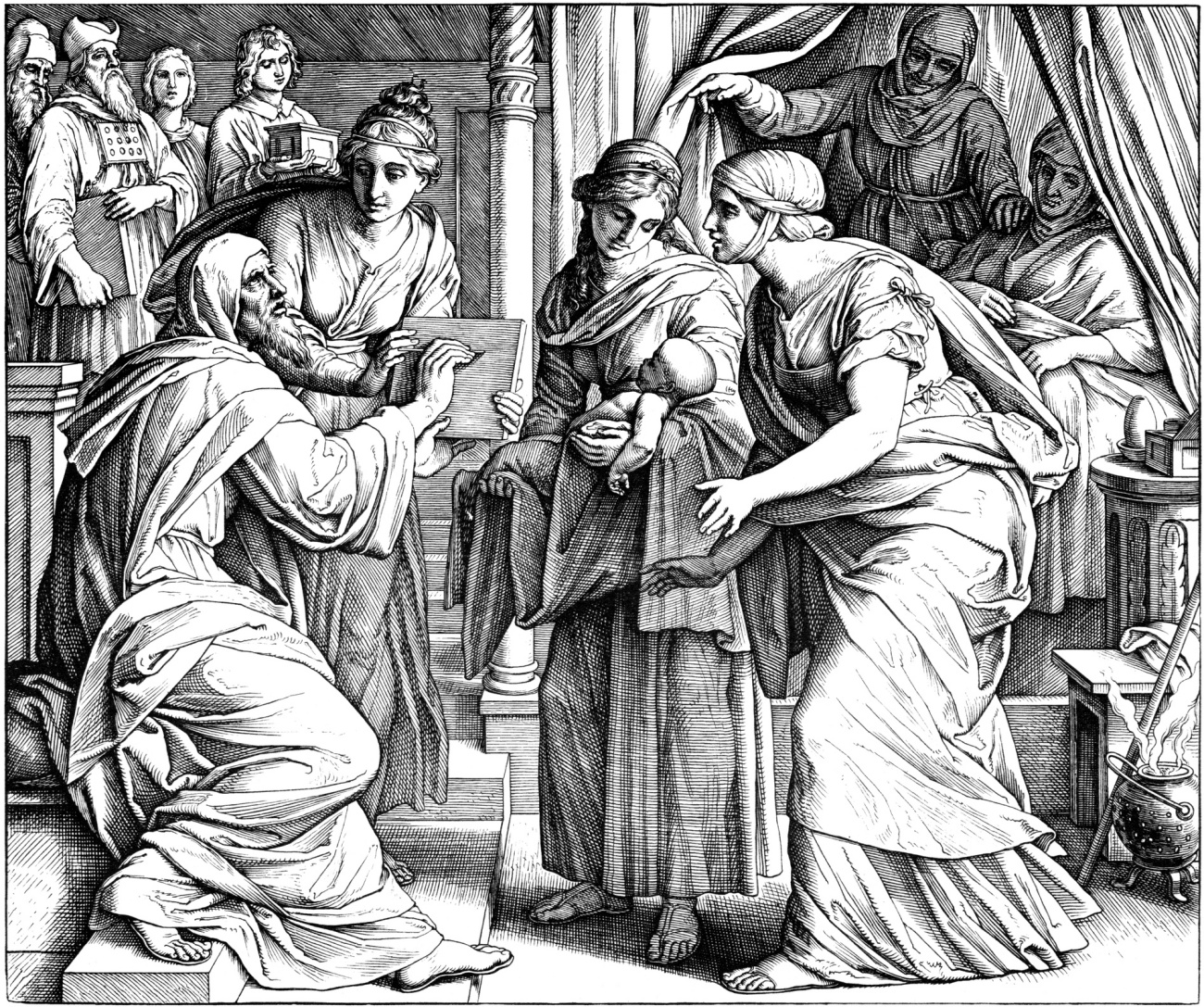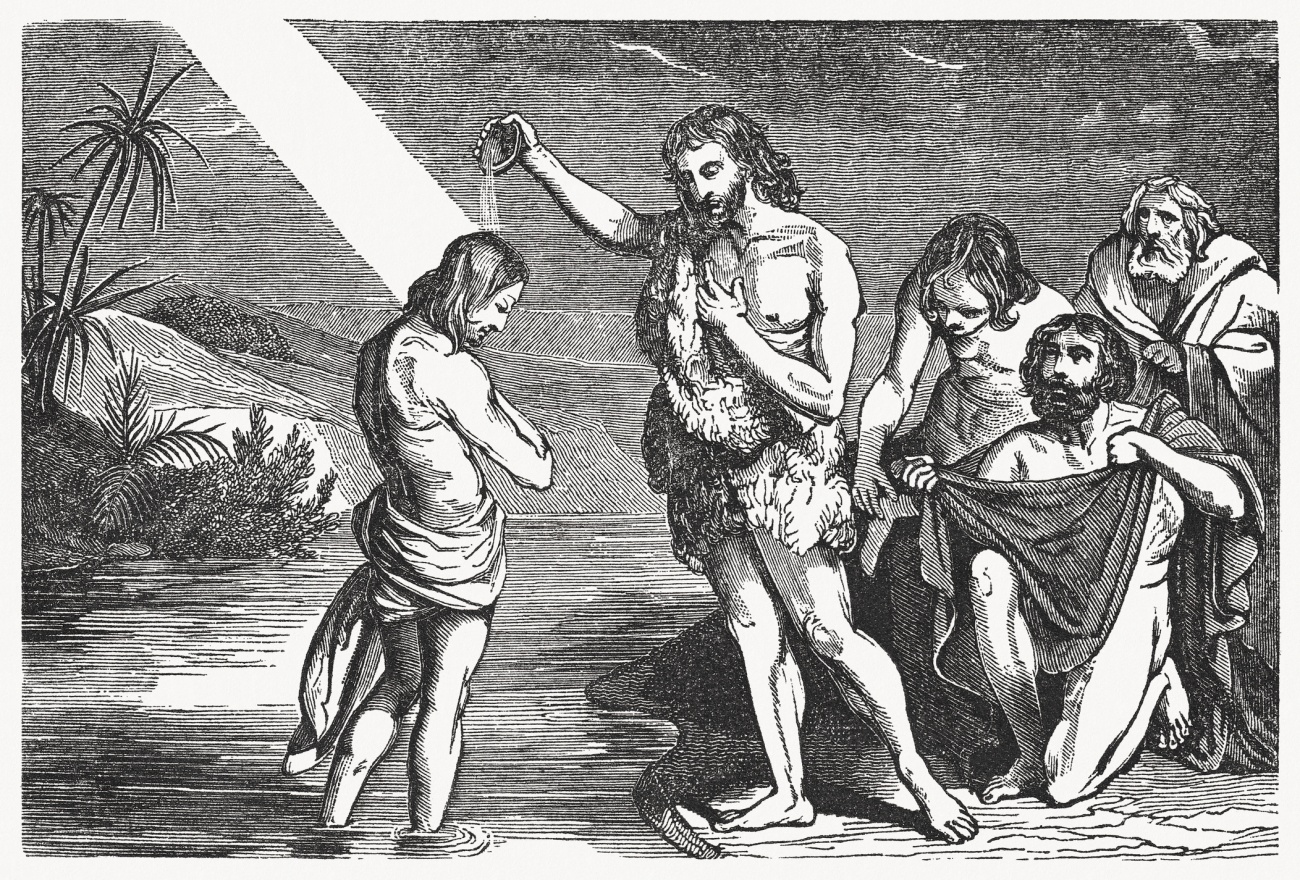The Canticle of Zechariah, Luke 1:68-79
The saving power of God has come among us and set us free.
Remember the scene here. It is days after John, who would be known as the Baptist, was born and was brought to the temple to be circumcised. Zechariah, a temple priest, and the baby John’s father had been struck mute months before because he did not believe the angel’s message to him that he and his wife, Elizabeth, were going to have a baby in their old age. The people ask Zechariah what name they are going to give the boy. Zechariah writes the name, John, on a tablet and all are surprised, but not as surprised as when he suddenly begins ecstatically singing this canticle.

“Blessed be the Lord, the God of Israel, for he has come to his people and set them free. He has raised up for us a mighty savior, born of the house of David” (verses 68-69). Who is Zechariah referring to here? Not his son, John, but Jesus. The words he speaks here in the canticle are phrases drawn from the prophets of the Old Testament, referring to the Messiah. The phrase about being born “of the house of David” gives this canticle its messianic overtone. The fact that the angel’s prophecy to Zechariah in the Holy of Holies in the Temple nine months earlier had come to fulfillment, and because Elizabeth’s pregnant cousin, Mary, had been staying with them for about three months during Elizabeth’s miraculous pregnancy, gives these words their raison d’etre, or their “reason for being”.
Zechariah’s words extend the messianic tone further when he sings, “Through his holy prophets he promised of old that he would save us from our enemies, from the hands of all who hate us. He promised to show mercy to our fathers and to remember his holy covenant. This is the oath he swore to our father Abraham: to set us free from the hands of our enemies, free to worship him without fear, holy and righteous in his sight all the days of our life” (verses 70-75). Two truths are revealed here: that God has honored his covenant, the oath he gave to Abraham, that he would show us mercy and that he would “set us free from the hands of our enemies.” Who are the enemies being referred to here? It is a reference to our most fearsome enemies, that is, sin and death. This was the promise of mercy and freedom that was fulfilled by Jesus’s incarnation, death, and resurrection. Because Jesus is the fulfillment of God’s promise, we know the depth of God’s mercy and the freedom it has given us.

Then Zechariah addresses his own son prophesying of him, “You, my child, shall be called the prophet of the Most High; for you will go before the Lord to prepare his way, to give his people knowledge of salvation by the forgiveness of their sins” (verses 76-77). And we see this prophecy about John coming to fruition three decades later. John, who had become a well known prophet, dwelling in the desert, who was attracting many to his message and baptizing them to “give them knowledge of the forgiveness of sins” that would come to them through the messiah about whose imminent coming he preached so fervently. John the Baptist’s whole raison d’etre was to “prepare the way of the Lord.”
Finally, Zechariah, ends his canticle with words of such beauty, force, and holy optimism, singing, “In the tender compassion of our God the dawn from on high shall break upon us, to shine on those who dwell in darkness and in the shadow of death, and to guide our feet into the way of peace” (verses 78-79). Zechariah’s canticle reveals the true nature of God’s love for us here. Like the dawn bringing light to a new day, the tender compassion of God has broken upon us in the Incarnation of Jesus Christ. The darkness of sin and death has been lifted from us by his death on the Cross and his Resurrection, and we can see clearly now the way of peace that the powerful light of God’s love and mercy has opened to us.

The whole canticle, like the words of all the prophets of old, points us toward that tender and compassionate dawn that saves us from our ancient enemies of sin and death, our Lord and Savior, Jesus Christ. We are free to worship him without fear now. And, like Zechariah, our hearts are so filled to overflowing with gratitude for God’s faithfulness and mercy that we, too, are moved to sing of his salvation. This is the reason for evangelization. It is our turn to be John the Baptists to our world, which has gone dark with skepticism and despair. This is the reason for our faith, for our hope, and for our call to love others as Jesus loves us. The saving power of God has come among us and set us free. Amen.
SKM: below-content placeholderWhizzco for FHB

